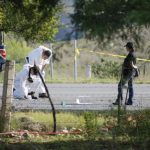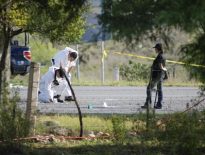By Linda Sieg and Yoko Kubota
TOKYO (Reuters) –
The assembly in a western Japanese town that hosts a nuclear plant agreed on Monday it was necessary to
restart two off-line reactors, its chairman said, the first such nod since all the country’s stations
were halted after the Fukushima crisis.

With power shortages
looming in the region when demand peaks this summer, the central government has been trying to win
approval from towns and prefectures that host reactors. All 50 reactors are off-line since the last one
shut down for maintenance on May 5.
The government is set to urge businesses and consumers in
Kansai Electric Power Co’s service area in western Japan to make voluntary power cuts of 15 percent
this summer to cope with shortages, media reported.
The Nikkei business daily, however, said
that the government would also consider mandatory power cuts and rolling blackouts if
necessary.
Mandatory restrictions were imposed in some regions last year after the Fukushima
crisis, the worst since Chernobyl in 1986, with three reactors suffering meltdowns after the plant was
hit by a huge earthquake and tsunami.
The central government last month said reactors No. 3 and
No. 4 at Kansai Electric Power Co’s plant in Ohi, Fukui prefecture, 360 km (225 miles) west of Tokyo,
were safe to restart.
Officials must still persuade a wary public – including residents of
regions close enough to be at risk from a nuclear accident but too distant to reap economic rewards –
that a resumption is safe. Delays in setting up a new nuclear regulatory agency due to disputes in
parliament have further spooked voters.
Kinya Shintani, the chairman of Ohi town assembly, said
that the local economy and employment have been affected by the reactor halts.
“Largely
understanding the necessity of nuclear power and taking into consideration the residents’ opinions as
well as the impact on consumers’ livelihoods and the economy, we decided to agree to a restart,” he
said in a statement.
Ohi received about 2.5 billion yen (19.2 million pounds) in subsidies in
the financial year to March 2010 related to Kansai Electric’s four reactors. Many jobs also depend in
some way on the plant.
KANSAI SHARES UP, NEIGHBOURS WARY
Kansai Electric’s share price
closed up almost 5.6 percent after the news, helping the benchmark Nikkei share index break a three-day
losing streak.
Tokyo Electric Power Co, Japan’s biggest utility and the owner of the Fukushima
nuclear plant, posted on Monday an annual loss of almost $10 billion as compensation claims for the
radiation disaster brought it to the brink of bankruptcy and fuel costs soared after idling all its
atomic plants.
The central government has no legal obligation to win local approval, but is
unlikely to proceed with restarts without the agreement of the host town and prefectural
government.
It is uncertain, though, whether Tokyo authorities would override opposition from
nearby prefectures with public opinion divided.
A weekend survey by the pro-nuclear power
Yomiuri newspaper showed that 45 percent of respondents backed restarting reactors deemed safe and an
equal number were opposed.
Some critics say the government is making undue haste to get reactors
up and running because surviving peak summer demand without nuclear power would make it hard to
convince the public that atomic energy is vital.
Environmental group Greenpeace said the
government’s “reckless push” to get reactors back in service “has left many communities thinking they
have to choose between risks to their health and safety, and risks to their jobs and
prosperity.
Nuclear power produced nearly 30 percent of Japan’s electricity before the crisis.
The government is working on a energy mix policy it hopes to unveil this summer, replacing a programme
that had aimed to boost the share of atomic power to more than 50 percent by 2030.
(Reporting by
Linda Sieg; Editing by Aaron Sheldrick and Sanjeev Miglani)





